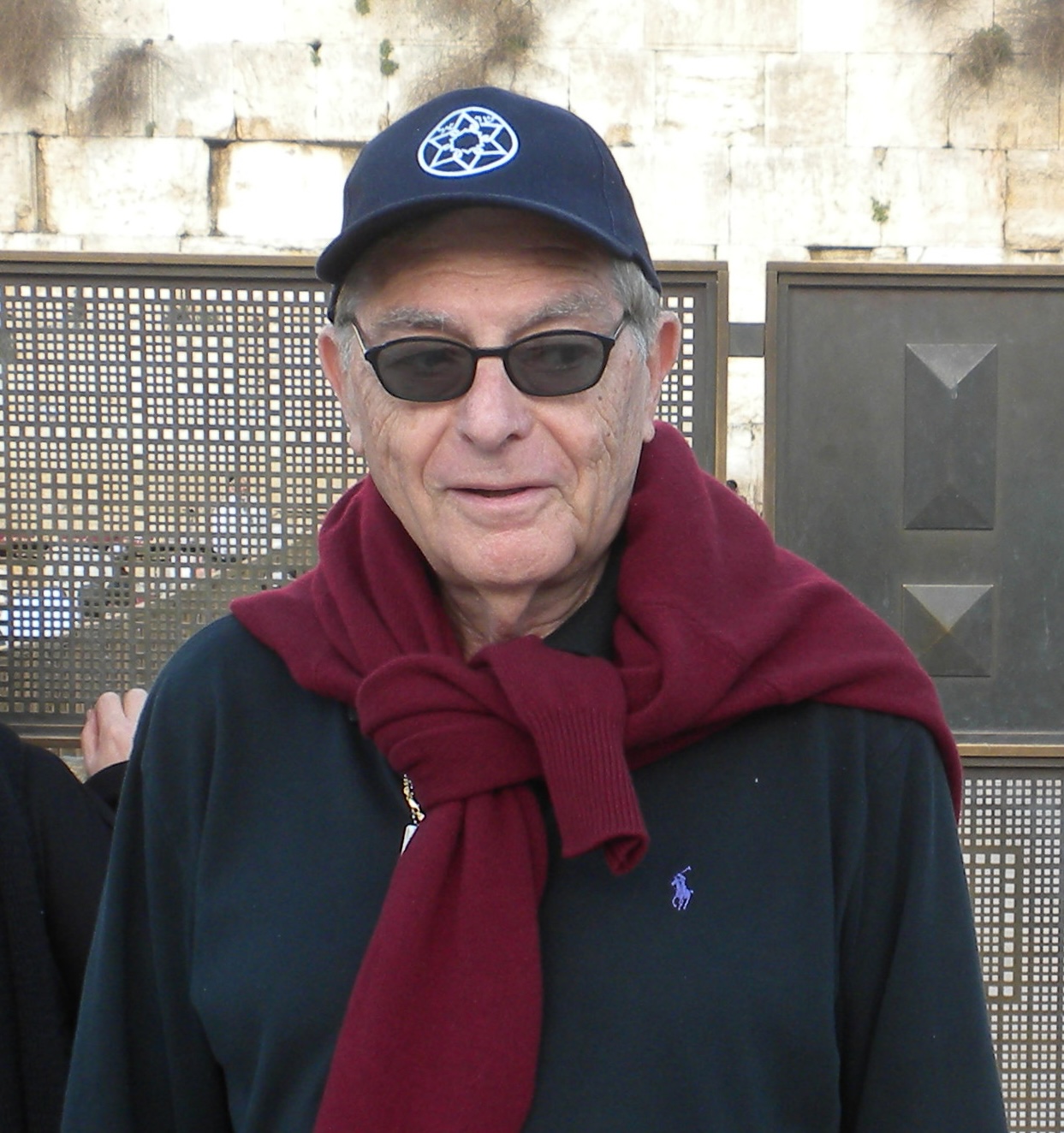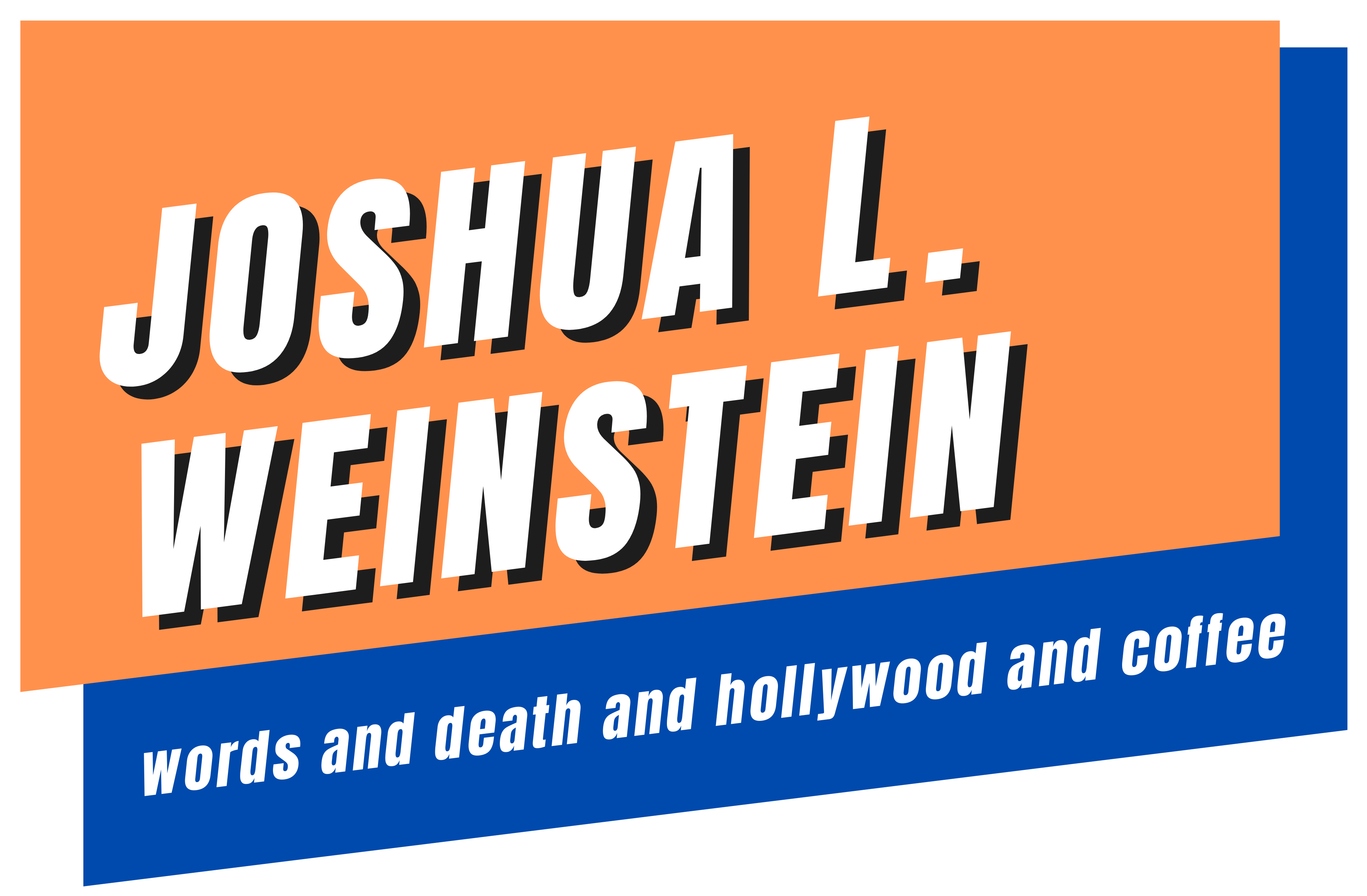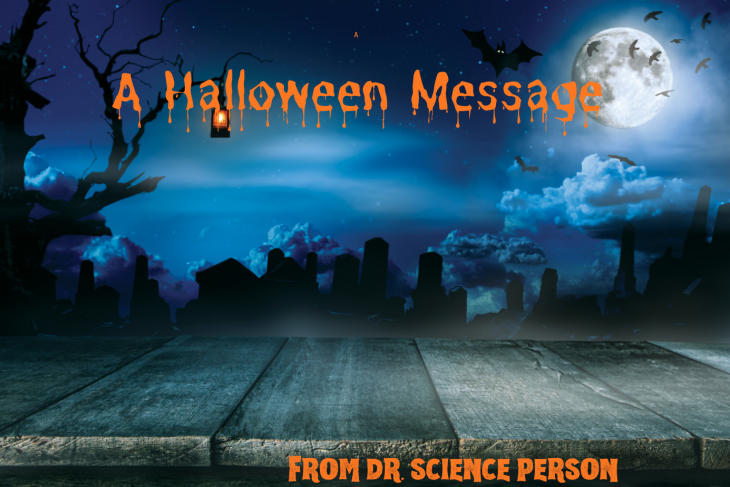
A few years ago, I got sick. Extremely high fever sick. Hospital sick. Undignified Stomach Issues sick.
I don’t remember much about the first few days I spent at Cedars. I remember shivering, and I remember a nurse wrapping a heated blanket around my feet, but it’s all very blurry.
Except this:
There’s an IV line in each arm, and even though I’m doped up on Dilaudid, I’m in deep pain. Someone—probably a nurse—comes into my room and asks, “Are you comfortable?”
I cannot raise my head from the pillow, but I smile imperceptibly, and, with some effort, I manage to say, “I make a living.”
I cannot help myself. Weinsteins are required to give that answer to that question. It is reflexive. Programmed. Installed by my father a very long time ago.
Alvin N. Weinstein was a learned, accomplished man. He spoke four languages—several of them well—and was a scholar, a brilliant lawyer, and a concert violinist who was partial to Gavotte en Rondeau from Bach’s Partita No. 3 in E Major BWV 1006 and Pop Goes the Weasel.
He had a remarkable mind that was capable of impressive and ridiculous feats. He could, for instance, spell any word backward.
We’d be at dinner, and someone would say, “Dad! ‘Rhododendron.’”
He’d answer, really fast, “N-O-R-D-N-E-D-O-D-O-H-R.”
(For the record, just now I had to ask Alexa how to spell “rhododendron.” Dad could spell it backwards.)
That remarkable mind of his enjoyed the silly as much as the serious. Actually, it excelled at serious but was even better at silly. He had schtick, my dad.
When the family would get in the car to go somewhere, Dad would announce, “We’re off! Like a herd of turtles!” Except he’d pronounce “herd of turtles” the way Curly, of the Three Stooges, would: “Hoyda toy-tulls.”
No matter how serious a situation, if there was an opportunity to laugh, Dad would take it.
In the months before his death eight years ago today, there was plenty serious. A reckless and irresponsible doctor had prescribed him a drug that helped lower his blood sugar but also caused cancer. The lazy, incompetent physician then missed (and missed and ignored) a symptom that should have been obvious. Suddenly, my larger-than-life father, a guy whose license plate said, “BIG AL-45” (he was 45 when my mother got him the personalized tag) was in and out of hospitals.
Here is a story I have told before, and I’m sure I will again:
Before one surgery, a nurse asked him the standard pre-surgery questions:
“What’s your name?”
Dad answered. The nurse consulted my father’s medical chart.
“What’s your date of birth?”
Dad answered. More consulting.
“Any allergies?”
“Yes,” my father answered.
The nurse looked confused. The chart said Dad had no allergies. The nurse flipped through papers on the chart. What are you allergic to, the nurse wanted to know.
“Bullshit,” my father told her.
Not long after, a nurse asked my dad the same question that another nurse would ask me years later.
“Are you comfortable?”
He was not. He was gravely ill. But he got this look in his eye, this mischievous John Belushi glint, and he said, “I make a living.”
When Dad was a young teen in Middle Village, Queens, he and his friend Seymour Strom (it was a time when there were people named “Seymour Strom”) used to go to the soda fountain at a drug store near where they lived. Ice cream cost a dime or something, and a soda cost a nickel. An ice cream soda—ice cream and soda—was 20 cents.
One day, Dad and Seymour went to the soda fountain with an ingenious plan to save a nickel.
They sat at the counter.
“I think I’ll have an ice cream,” Dad said.
“I think I’ll have a soda,” Seymour said.
They paid their dime and nickel and the guy at the counter—the soda jerk—handed Dad a bowl of ice cream and Seymour a large glass of soda. Dad and Seymour immediately combined the two and—voila!—had a 15-cent ice cream soda.
The jerk was having none of it.
“Fine,” he said, “but I’m not going to give you spoons.”
Dad was a step ahead of him.
“That’s OK,” my father said.
I imagine he got that John Belushi look in his eye as he and Seymour each pulled a spoon out of their pocket.
And I imagine the guy behind the counter laughed, too.
I’m pretty sure my father wanted him to, because Dad wanted to include everyone in the joke. Keeping laughter to yourself is petty. Sharing the schtick is generous. My father was generous.
Dad grew up during the Great Depression, was an Infantry officer in the United States Army, had two older sisters. He knew challenge. And he matched every challenge powerfully. With intellect and a sense of humor.
Eight years ago today, on Yom Kippur 2016, my father did something that made no sense. He died.
I remember that morning. I remember hyperventilating. I remember being very sad. I remember telling someone that I couldn’t wrap my mind around the idea that I’d never be able to talk to my father again.
Someone replied with what I’m sure was meant to be helpful but was incomprehensibly stupid.
“You can still talk,” he said.
I started to say it’s not the same, but arguing with stupid is folly.
It’s a long time, eight years, and I can’t remember exactly what Dad’s voice sounded like. But when I hear Pop Goes the Weasel, or when my mother, my brothers, my sister, my nieces, my nephews say “hoyda toy-tuls,” or when they get a certain glint in their eye, I hear its echo.
And when I find humor during difficult times, or bring someone else into the joke, or deliver my father’s line, his voice echoes from within. An imperceptible smile is still a smile.







